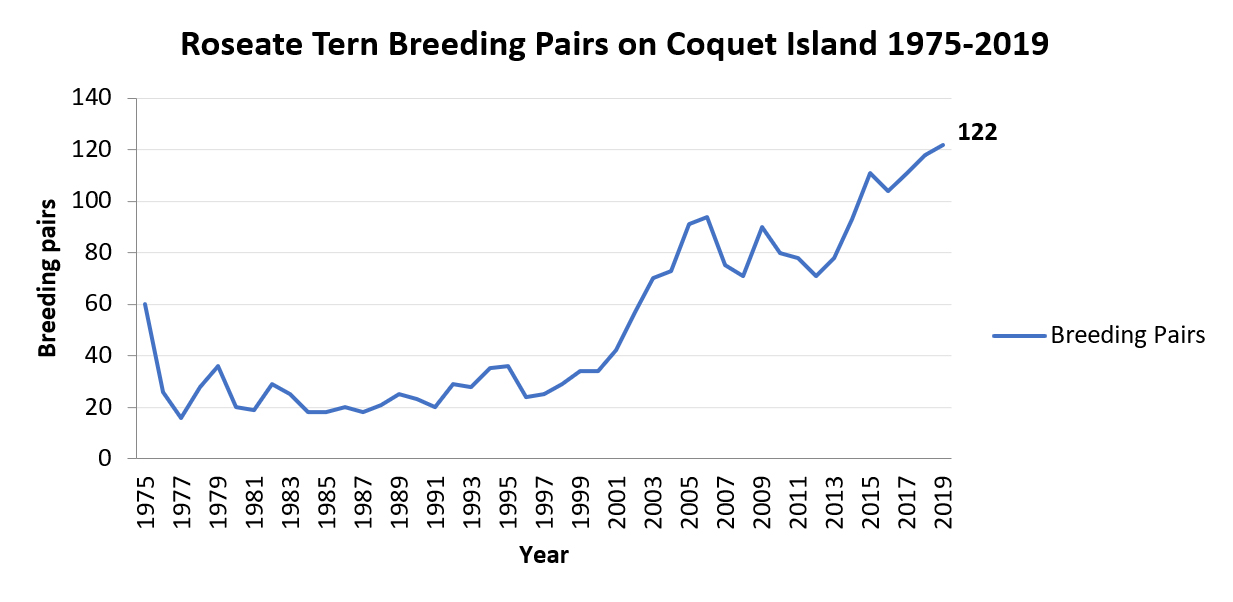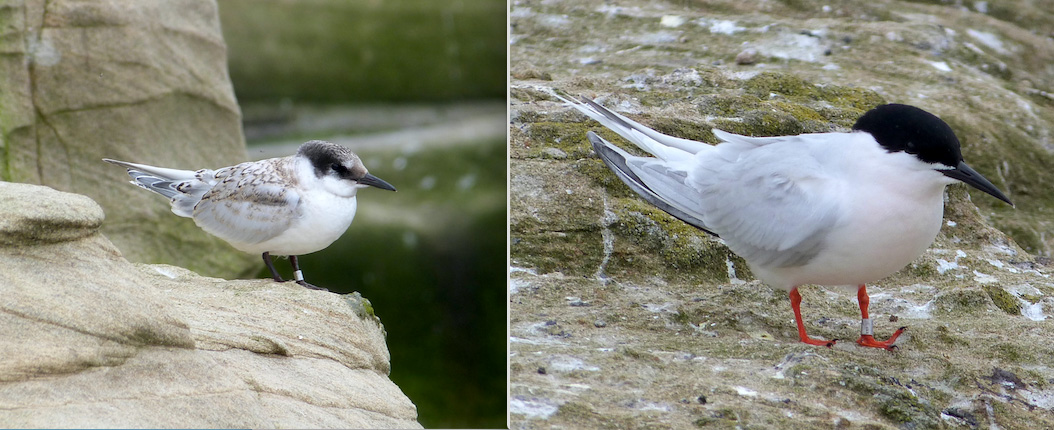Less than a mile out into the North Sea, off the Northumberland coast, lies Coquet Island, home to the only UK breeding colony of Roseate Terns – and what a year it has been on Coquet for Britain's rarest seabird.
The population record was broken for the second season in a row, with 122 pairs nesting on the island (four more than last year). This is the highest number of Roseate Terns nesting on the island since the RSPB took over management of the reserve in the 1970s. It was a fantastic year for productivity as well, with a higher average clutch size than in 2018 and relatively low chick mortality, meaning some 160 chicks successfully fledged from the island – the second highest total recorded.

Line graph showing the change in the number of breeding pairs of Roseate Terns on Coquet Island from 1975-2019 (RSPB).
All chicks were ringed with new, alpha-code Roseate Tern 'special' rings, now in their third year of use. Prior to 2017, all birds were ringed with an alpha-numeric ring on the left leg and a standard BTO ring on the right. Aside from the obvious benefits of using a single ring rather than two when ringing the chicks, these sequences appear to be clearer to read with a telescope.
We spend a lot of time reading rings in order to discover interchange of birds between colonies, mainly between Coquet Island and the Rockabill Island and Lady's Island Lake colonies in the Republic of Ireland. We have a close partnership with these Irish colonies as part of the European Union's LIFE programme. Without its contribution we couldn't do much of the work we do on Coquet.
Towards the end of this season we started to see a number of birds which had been ringed as chicks in 2017 returning to Coquet (now in full adult plumage), prospecting the nestboxes we lay out on terraces on the western face of the Island. This is a very good sign for the health of the colony in future years and we hope to see these birds return over the next few seasons to have chicks of their own.

A fledged Roseate Tern chick from this season (left) and a youngster from 2017, now in full adult plumage (David Kinchin-Smith / RSPB).
For the third year running, we have streamed live cameras from the island which can be viewed during the season at: www.rspb.org.uk/coquetlive. One of the three cameras is inside one of our Roseate Tern nestboxes, which gives us a unique and privileged insight into the behaviour of these striking and charismatic seabirds. Both chicks from this nestbox successfully fledgedand left the island.
Although this season has all but finished, the cameras will be back in 2020, so make sure you're watching.

Stills from the nestbox webcam show the first chick newly hatched (left) and just a matter of hours old (David Kinchin-Smith / RSPB).


